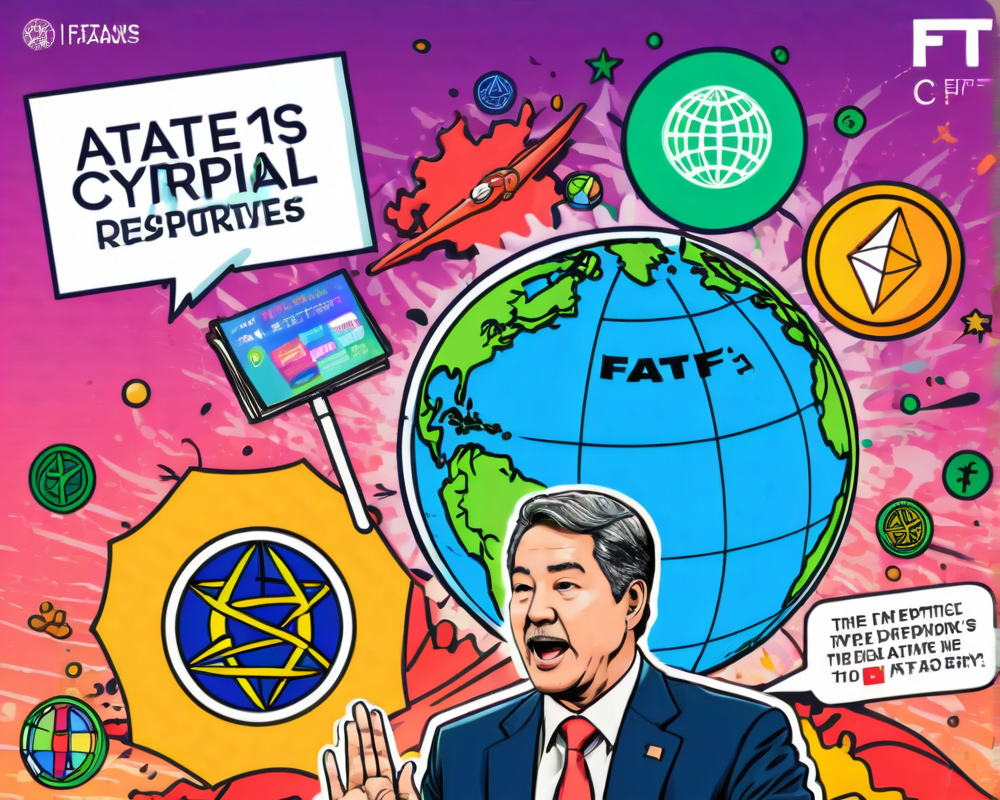The Controversial FATF Guidance
Nearly eight months ago, the Financial Action Task Force (FATF) stirred the pot in the crypto world with its controversial guidelines. This intergovernmental organization, which aims to combat money laundering, issued directives that essentially placed the burgeoning cryptocurrency sector under the same regulatory umbrellas as traditional banking. Talk about a plot twist in the digital currency saga!
The Travel Rule: A Boon or Bane?
Perhaps the most notorious directive is the infamous travel rule. Under this mandate, Virtual Asset Service Providers (VASPs)—including crypto exchanges and custodians—must disclose specific customer information for trades exceeding $1,000. This revelation didn’t just raise eyebrows; it had crypto aficionados clutching their virtual pearls. The directive aims to thwart potential criminal activities, but it raises questions about user privacy and the administrative burden on exchanges.
The U.S.: On the Leading Edge
The U.S. was among the first to sip the regulatory Kool-Aid, having set the wheels in motion way back in 2013. FinCEN laid down the law, helicopter-parenting the space with strict enforcement of the Bank Secrecy Act. However, in a classic case of ‘do as I say, not as I do,’ many major crypto firms have been less compliant than a cat at a dog show. FinCEN’s director noted that many violations go unpunished, leading some to ponder whether a softer approach is in play to nurture innovation.
Europe’s Half-Baked Response
When it comes to the European Union, the narrative is a little less cut and dry. The EU’s Fifth Anti-Money Laundering Directive (5AMLD), which went into effect in January, seems to echo FATF in spirit but lacks the bite of its predecessor. Crypto-to-crypto exchanges, for one, breathe a sigh of relief as they are currently not on the EU’s list of obliged entities. Smart move or a loophole too wide to ignore?
The Global Ripple: Asia’s Gains and Kinks
Japan, South Korea, and Singapore are rolling out the red carpet for FATF’s guidance like it’s the newest trend on a Paris runway. Japan regards cryptocurrencies as property, instituting compliance measures years ago. South Korea took a legislative leap with a bill that mirrors FATF directives, while Singapore’s Payment Services Act now demands anti-money laundering compliance from its crypto services—a theme that seems to resonate across the continent.
Adapting Under Pressure: Crypto Platforms’ Reaction
Despite FATF’s push, many crypto firms remain questionable when it comes to compliance. Some industry experts argue that the fragmented landscape of crypto makes FATF guidance feel like trying to herd cats. But solutions are popping up, like pop-up ads on a sketchy website. From CipherTrace’s TRISA to various blockchain analytics firms, many platforms are developing compliance tools, but will it be enough?
Privacy Coins: Caught in the Crossfire
As FATF directives roll out, privacy coins like Monero and Zcash are feeling the heat. Some exchanges have even started discrediting these obscured assets to keep regulators happy—alienating the very users that champion decentralization. Interestingly, proponents of privacy coins argue that compliance can coexist with their anonymity-centric ethos as they continue to innovate.
Conclusion: The Future is Now (Or is it?)
While FATF guidelines may not offer a one-size-fits-all solution, they do present an opportunity for the cryptocurrency sector to evolve. For better or worse, this push for regulation could lend legitimacy to the industry, paving the way for broader acceptance. Only time will tell whether this will fortify the crypto kingdom or sink it into the abyss of compliance chaos.




